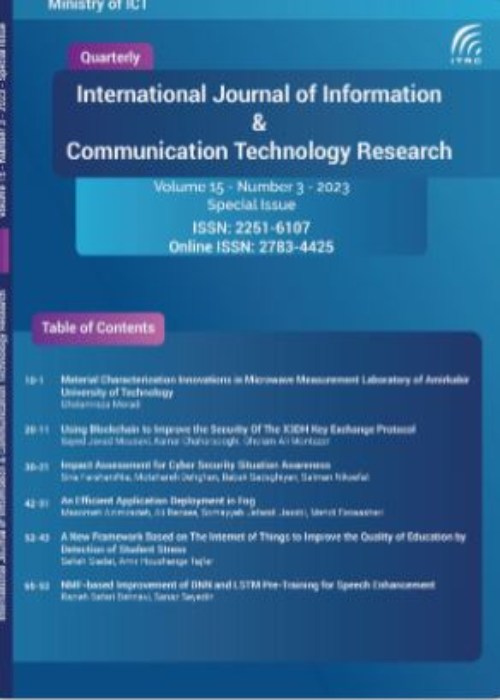DISOT: Distributed Selfish Node Detection in Internet of Things
Internet of Things (IOT) has prepared for a range of small sensors to popular laptops. Wireless communication in IOT systems assumes the nodes as a terminal as well as a router which can transmit the data packets. However, individual nodes may refuse to cooperate with others sometimes, leading to a selfish node behavior. The existence of selfish nodes degrades the network performance. This paper proposes to detect selfish nodes in IOT (DISOT) in three phases: Setup and Clustering phase which identifies and then clusters all the nodes in the network. The global phase which indicates whether a selfish node(s) exists in the clusters or not using the main cluster head and the cluster heads in each cluster must identify the selfish node(s) within the local phase. The proposed scheme is simulated by 2500 IOT nodes in the network and the results show that DISOT reduces end-to-end delay up to 41% and when the percentage of selfish nodes in the network does not exceed 35%, DISOT increases detection accuracy up to 10% and false positive rate decreases down to 5%.
- حق عضویت دریافتی صرف حمایت از نشریات عضو و نگهداری، تکمیل و توسعه مگیران میشود.
- پرداخت حق اشتراک و دانلود مقالات اجازه بازنشر آن در سایر رسانههای چاپی و دیجیتال را به کاربر نمیدهد.


